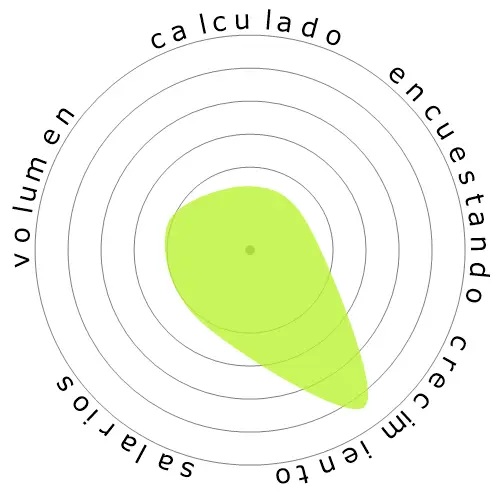Intérpretes y Traductores




Las personas también vieron
Riesgo de automatización calculado
Alto Riesgo (61-80%): Los trabajos en esta categoría enfrentan una amenaza significativa por la automatización, ya que muchas de sus tareas pueden ser fácilmente automatizadas utilizando tecnologías actuales o de un futuro cercano.
Más información sobre qué es esta puntuación y cómo se calcula está disponible aquí.
Encuesta de usuarios
Nuestros visitantes han votado que es muy probable que esta ocupación sea automatizada. El nivel de riesgo de automatización que hemos generado es menos claro y muestra un 70% por ciento de posibilidad de automatización.
¿Cuál crees que es el riesgo de la automatización?
¿Cuál es la probabilidad de que Intérpretes y Traductores sea reemplazado por robots o inteligencia artificial en los próximos 20 años?
Sentimiento
El siguiente gráfico se incluye siempre que haya una cantidad sustancial de votos para generar datos significativos. Estas representaciones visuales muestran los resultados de las encuestas de usuarios a lo largo del tiempo, proporcionando una indicación importante de las tendencias de sentimiento.
Sentimiento a lo largo del tiempo (trimestralmente)
Sentimiento a lo largo del tiempo (anualmente)
Crecimiento
Se espera que el número de ofertas de trabajo para 'Interpreters and Translators' aumente 2,3% para 2033
Empleo total y estimaciones de vacantes laborales
Las proyecciones actualizadas se deben 09-2025.
Salarios
En 2023, el salario anual mediano para 'Interpreters and Translators' fue de 57.090 $, o 27 $ por hora.
'Interpreters and Translators' recibieron un salario 18,8% más alto que el salario medio nacional, que se situó en 48.060 $
Salarios a lo largo del tiempo
Volumen
A partir de 2023, había 51.560 personas empleadas como 'Interpreters and Translators' dentro de los Estados Unidos.
Esto representa alrededor del < 0,001% de la fuerza laboral empleada en todo el país.
Dicho de otra manera, alrededor de 1 de cada 2 mil personas están empleadas como 'Interpreters and Translators'.
Descripción del trabajo
Interprete el lenguaje oral o de señas, o traduzca textos escritos de un idioma a otro.
SOC Code: 27-3091.00


Comentarios
Leave a comment
Automation can incredibly speed up the process of translation but human element is a must. Also, in terms of transcreation and localisation for different contexts etc. the AI does not have enough understanding of culture and context regardless of the input.
No not a chance.
Ps : Google translate is still funny, I tried translating 1 sentence into like almost all languages and the sentence was not even close to what I had originally typed. I don't think it's gonna get better
However, we humans are still needed to correct the sometimes amazingly stupid solutions the machine offers when the text is completely new and there are no precedents. Anyway, I would not advise my daughter to choose this profession, except when she likes text editing...
Also interpreters and translators are two very different jobs with different automation risks, I don't think they should be together in one category.
Deja una respuesta sobre esta ocupación